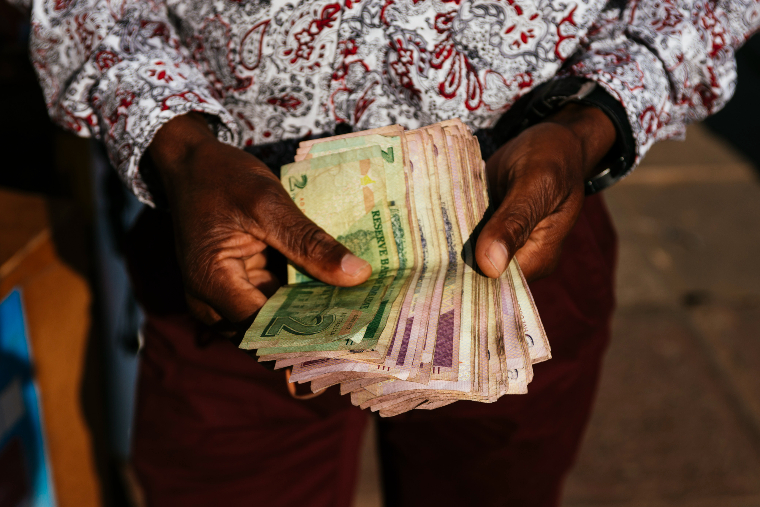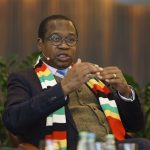 Zimbabwe’s recent order to compel businesses to pay half of their US dollar taxes in Zimdollars is meant to support the sagging local currency. The move is laying the ground for more drastic action ahead – forcing a return to the Zimdollar as the “mono currency” and restricting the use of the US dollar for local transactions.
Zimbabwe’s recent order to compel businesses to pay half of their US dollar taxes in Zimdollars is meant to support the sagging local currency. The move is laying the ground for more drastic action ahead – forcing a return to the Zimdollar as the “mono currency” and restricting the use of the US dollar for local transactions.
In 2022, after speculation that Zimbabwe would ditch the multicurrency system again, Finance Minister Mthuli Ncube enacted Statutory Instrument 118A to “embed the multicurrency system and the continued use of the US dollar into law” until 2025. The SI was meant to reassure the market that there would be no shift away from the multicurrency system for the remainder of NDS1, the government’s five-year economic plan launched in 2020.
“The market’s lack of confidence in multicurrency is causing us problems, but I’m here to assure you it will remain in place,” Ncube said then.
But, according to government officials, there may be changes. There is debate in government on “going back to 2019”, when the Zimbabwe dollar was made the only currency for local transactions.
“The sentiment is strong that we must go back to our own currency as the mono-currency for local transactions. You should anticipate some major changes on the exchange front after August,” a senior Treasury official said, referring to the elections. “There is a lot of discussion on how best to plot our way back there (to Zimdollar use).”
This would be a throwback to 2019, when the government decreed that the Zimdollar would be the sole legal tender in Zimbabwe. This policy was only eased in 2020, as part of COVID relief measures.
The government has been dropping hints on the possibility of drastic currency changes.
In video clips posted by his media officers recently, President Emmerson Mnangagwa said: “What we might do is legislate against foreign currencies to make sure we use our own currency. Our people must know our currency is there to stay. It must stick (in people’s heads). Foreign currencies are not here to stay.”
Mnangagwa’s spokesman, George Charamba, has hinted online of “changes (that) will speak stunningly” on the currency. The recent measures on Zimdollar taxation, Charamba has also said, “gives us a basis for post-election big changes”.
The Zimbabwe dollar has fallen sharply in recent months, fueling inflation of 175.8% in June. Critics point to weak monetary policy as the cause of the local unit’s collapse, but elements in Government see it as a political conspiracy by big business.
Reverting to sole Zimdollar use will not be easy. More than 75% of all local transactions are now in foreign currency, according to the government’s own data and financial reports by listed companies. This means that any return to the Zimdollar as the sole currency will be tough to enforce. The informal market dominates the economy, and enforcement will only likely hit formal businesses, some officials in government and business fear.
“Replacement pricing is becoming extremely difficult in local currency, and it is not astounding that some products in formal retail shops are now being sold exclusively in USD,” according to a new report by the Confederation of Zimbabwe Industries (CZI).
“The continued depreciation of the local currency is causing rejection of local currency in some quarters and unrelenting price hikes in formal shops which are required by law to accept ZWL$ and are under close surveillance,” said the CZI.- NewZWire
(118 VIEWS)

